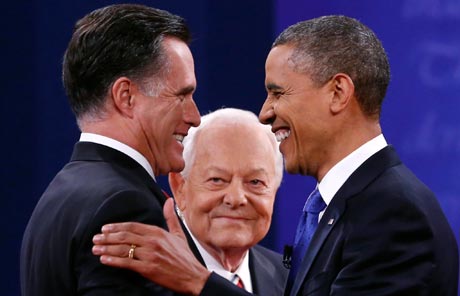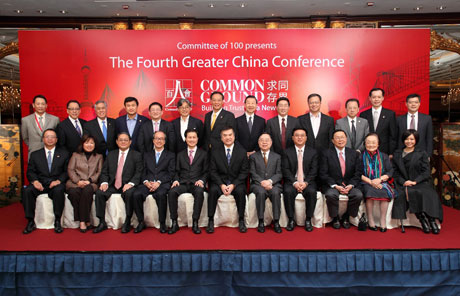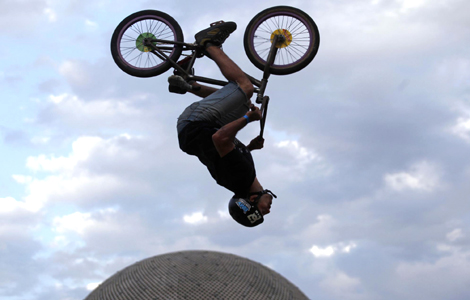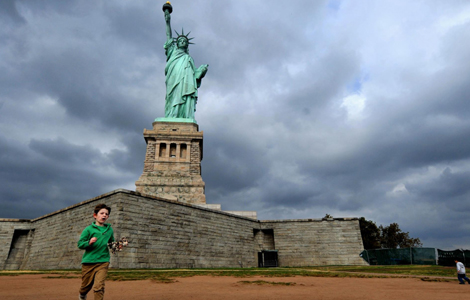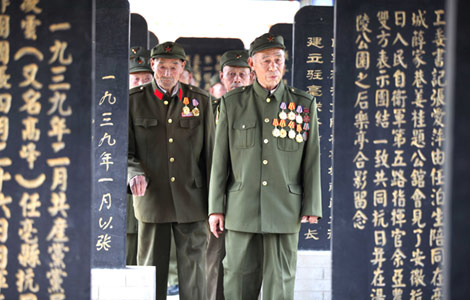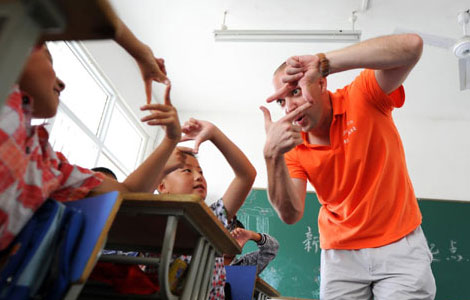Argentina embassy in Beijing boosts Tango diplomacy
Updated: 2012-10-28 07:47
By Belle Taylor (China Daily)
|
||||||||
Head of culture at Argentina embassy runs dance lessons in Beijing and tells Belle Taylor they literally bring people together.
Santiago Rafael Martino glides across the floor of the Tango Hui dance studio in the Chaoyang district of Beijing, clapping his hands in time to the music."Now, ladies will feel the pleasure of being held by the man and moving around the floor to the music," Martino tells the nervous looking dancers taking part in their first ever tango lesson.
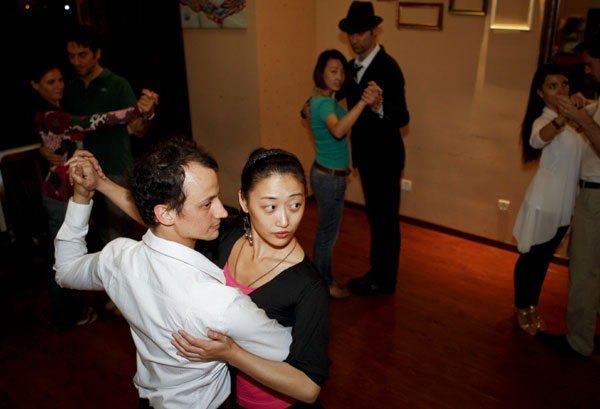 |
|
"Everyone can dance tango," insists Argentina's Santiago Rafael Martino. [Photo by Kuang Linhua / China Daily] |
The women don't look like they are receiving much pleasure as they cling awkwardly to their partners, who clumsily guide them across the floor, but Martino looks on approvingly as he strides around the room clapping: "One-two-three, one-two-three!"
It may look like an ordinary dance class, but Martino is no ordinary dance teacher. He is the head of culture at the embassy of the Republic of Argentina.
Meanwhile, the shuffling dancers with their hesitant steps are not only learning to tango - they are being introduced to the culture of Argentina.
On Sunday afternoons at the Tango Hui dance studio and on Tuesday nights at a bar in Beijing's diplomatic hub of Sanlitun, Martino connects China to his homeland through dance floor diplomacy.
"In the dance studios sometimes you see not only the flag of Argentina, but also Mate (the nationally popular drink) and figurines representing Argentina," proudly says Martino, who is also instrumental in bringing Argentine film and literature to China.
Martino, 38, was an accountant until 2007 when he decided on a career change and joined the Argentine Ministry of Foreign Affairs and Worship.
It was when he was working with the Argentine Ministry of Foreign Affairs and Worship in Buenos Aires in 2010 that he hit upon the idea of teaching diplomats to dance as part of their preparations to work with governments across the globe.
"I said, 'When we go abroad people will ask us about the tango, why not teach the diplomats a few steps?'" Martino explains.
His idea grew into a program to offer voluntary dance classes to all employees at the Argentine foreign ministry. In January 2011, Martino arrived in Beijing.
"I first started to learn about the dance community and then last year I started to give small classes, and now I have requests from friends, diplomats, Chinese, tango fans and officials who want to learn tango."
The Argentina embassy offers classes to some divisions of the Chinese Ministry of Foreign Affairs, and Martino also offers free lessons whenever he has the time. There is also a regular milonga, or tango party, on Tuesday night in Beijing which is run by ballroom dance teacher Shirley Xu.
Martino estimates there are about 500 tango dancers in Beijing and many more across China, with particularly big communities in Shanghai and Hong Kong. Through his job at the embassy, Martino also brings in some of the world's top tango dancers to teach.
He attributes part of the success of his tango initiative to its egalitarianism, believing you do not need the body of a dancer, just a feel for the music and the passion of the dance.
"Tango dancers from Argentina don't have a perfect shape, some have fat bellies, and you wonder to yourself, 'How can he dance so wonderfully?'" Martino says. "Is it the way he leads the women? Is it the right steps? No. He is following the music, feeling, making the women feel he is leading wonderfully. Everyone can dance tango."
Martino has even discovered someone who he hopes will be China's tango ambassador to the world.
Shirley Xu, who is behind Tango Hua dance studio and the Tuesday milonga, is set to represent China in the Festival Mundial, an international tango competition in Buenos Aires that takes place every August.
Argentine Ambassador Gustavo Alberto Martino could not be more thrilled.
"One of my goals when I came (to Beijing) was to promote Argentine Tango in China," he says. "It's really uncommon to find a professional tango dancer as an employee. It's very unusual so we take advantage of it."
Back at the capital's dance studio, the rookie dancers are beginning to move around the floor with more confidence. Their steps have grown surer, their holds more relaxed.
Martino and Xu demonstrate a few moves, showing the grace and confidence of the dramatic dance. The beginners look on, and return to their partners with renewed determination, arms high, backs straight.
"When you finish the dance that magic is no longer, and the dancers feel better. That's the magic of the dance," Martino says.
The magic may be fleeting, but Martino hopes the tango endures on the dance floors of China for many years to come.
Contact the writer at sundayed@chinadaily.com.cn.
